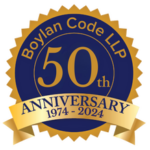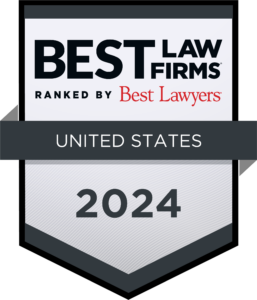By: Special To The Daily Record//November 27, 2023//

In June 2023, the New York State Legislature passed legislation prohibiting non-compete agreements.[1] While many expected Governor Kathy Hochul to quickly sign the legislation, she has yet to do so. Although it still seems likely that the governor will eventually sign some form of the legislation, thereby enacting it into law, the delay may be a sign that it will be a somewhat different version than was passed by the legislature.
The legislation in its current form is quite broad. It prohibits all non-compete agreements between an employer and a covered individual.[2] A “non-compete agreement” is any agreement between an employer and a covered individual that “prohibits or restricts such covered individual from obtaining employment, after the conclusion of employment with the employer….”[3] A “covered individual” includes not only W-2 employees but any person who “performs work or services for another person on such terms and conditions that they are, in relation to that other person, in a position of economic dependence on, and under an obligation to perform duties for, that other person.”[4] The legislation, therefore, covers not only those workers the employer treats as employees but also workers the employer may treat as independent contractors but would be considered employees by the United States Department of Labor.[5]
In addition to prohibiting an employer from entering into a non-compete agreement with a covered individual, the legislation also voids every contract to the extent it restrains anyone from engaging in a lawful profession, trade, or business of any kind.[6] The latter provision of the legislation is not limited to non-compete agreements arising out of an employment relationship and so appears to also prohibit non-compete agreements arising out of the sale of a business. The legislation, however, would not void existing agreements, only agreements entered into or modified on or after 30 days after the legislation becomes law.[7]
The legislation specifically provides that it does not, among other things, affect any law or rule relating to the ability of an employer to prohibit the solicitation of the employer’s clients that the covered individual learned about during employment, provided the agreement does not otherwise restrict competition in violation of the legislation. Thus, while the legislation ostensibly removes non-solicitation clauses from the legislation’s prohibition, it might also be interpreted as prohibiting a non-solicitation clause that indirectly restricts an employee from obtaining post-termination employment. For example, if there are a limited number of clients in a particular industry and a non-solicitation clause effectively prohibits a former employee from soliciting all or most of those clients, it may indirectly restrict the employee from obtaining employment and thereby run afoul of the legislation.
The legislation would also create broad remedies for violations of the law. In addition to giving courts jurisdiction to award lost compensation, damages, and attorneys’ fees, the legislation provides that courts shall award liquidated damages of up to ten thousand dollars to every covered individual affected under the legislation,[8] creating what appears to be a mandatory liquidated damages award for covered employees affected by a prohibited non-compete agreement.
As previously mentioned, the governor’s delay in signing the legislation may indicate that the governor won’t sign it into law or, maybe more likely, that it will be amended before being enacted. Governor Hochul has previously proposed legislation banning non-compete agreements for workers making below the median wage in New York State. Therefore, one possible amendment to the legislation is an income threshold, such that the prohibition on non-compete agreements would only apply to agreements with employees below a certain income level. Another possible amendment is an exception for non-compete agreements arising from business sales. Yet another possible amendment is a more complete or clarified carve-out for non-solicitation agreements. Stay tuned for more developments.
Notice:
Attorney Advertising. This article is for informational purposes only, is not exhaustive, and is not, and should not be construed as, legal advice or legal services. You should consult with an attorney to determine the applicability of any laws or rules to your individual situation.
Article written by J. Michael Wood, Esq., Boylan Code LLP, 145 Culver Road, Rochester, New York 14620, (585) 232-5300, mwood@boylancode.com.
Dated: October 18, 2023
[1] New York State Senate Bill 2023-S3100A, New York State Assembly Bill 2023-A1278B.
[2] Proposed New York State Labor Law § 191-d(2).
[3] Proposed New York State Labor Law § 191-d(1)(A).
[4] Proposed New York State Labor Law § 191-d(1)(B).
[5] The federal Department of Labor proposed new regulations in 2022 which would refocus the employee/independent contractor inquiry on whether the worker is economically dependent on the employer.
[6] Proposed New York State Labor Law § 191-d(3).
[7] New York State Senate Bill 2023-S3100A § 3.
[8] Proposed New York State Labor Law § 191-d(4)(B).


